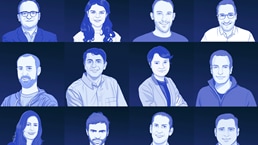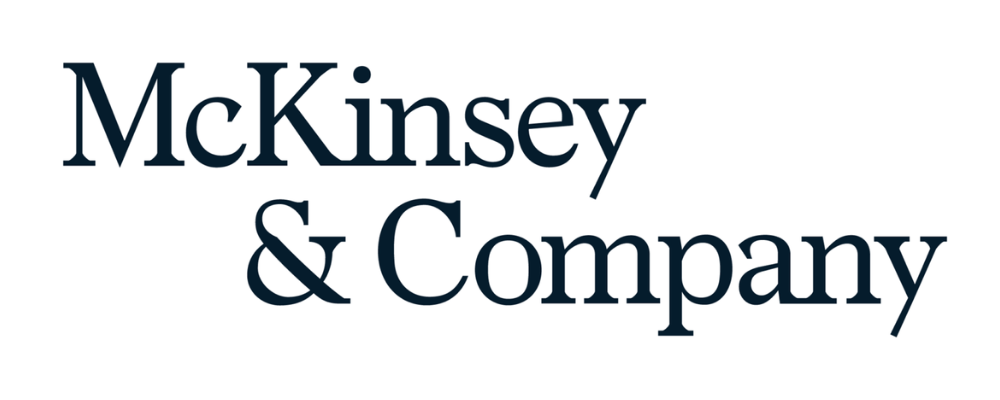For sennder, a leading European digital road freight forwarder, challenges have been catalysts for growth. Founded in 2015, the Berlin-based trucking company has rapidly transformed the European industry by digitalizing road logistics. Although sennder’s growth has been explosive, it hasn’t come without hurdles. However, thanks to a culture of learning, transparency, accountability, and team spirit, the company has used setbacks as opportunities to scale its operations, secure significant funding, and expand its market presence.
In an interview with McKinsey’s Max Flötotto and Tobias Henz, sennder’s co-founder and CEO David Nothacker discusses the company’s origins and how he has made the most of challenging moments at every step of the way.
Max Flötotto: Can you talk about what it was like to grow a business while living with your co-founders?
David Nothacker: Today, we are proud to be among the largest FTL [full truckload] players in the market, with teams across multiple offices. But our journey started almost ten years ago in a much more intimate setting: living and working with my co-founders.
The close-knit environment was a game changer in the early stages of sennder’s growth journey. It meant we could solve problems spontaneously, whether it was brainstorming over breakfast or late-night strategy sessions. We could communicate openly without fear, knowing that we had each other’s backs.
Of course, the line between personal and professional life often blurred. We would brush our teeth together, go to the office, work until evening, and then come back home. Any disagreements at work could easily spill over into our personal relationships and vice versa.
As we learned to navigate the complexities of intertwining personal and professional lives, we matured together. The strong foundation we built during those early days underpins our success today.
Max Flötotto: Was there a specific moment when you realized that your business needed to outgrow its infancy stage, and how did you react to this realization?
David Nothacker: Yes. It was just two weeks after signing our Series A financing round. We realized that our then-manual processes were causing significant delays in invoice payments—a potential risk for our customer relations. This was a sign that we needed to evolve beyond our start-up mentality and quickly professionalize our operations.
During this phase of sennder, everyone had their own area of responsibility, but roles were not clearly defined, which led to inefficiency. As we addressed the invoice challenge, I realized that as a founder, you can’t put out all the fires at the same time, and we needed clearer decision-making processes and more-defined roles within the team.
Challenges like these have been catalysts for our growth. Each one has forced us to adapt quickly, streamline our processes, and implement stronger corporate governance. Today, we’re more agile and resilient because of those early experiences.

Tobias Henz: Did you follow a specific strategy to adapt to growth without exhausting yourself and your team?
David Nothacker: In each growth phase, we essentially had to reinvent the organization. We strategically expanded our leadership team with industry experts with decades of experience. This new talent introduced more structure and processes, which also allowed us to redefine our roles and responsibilities to align with new objectives. By doing so, we ensured that both the team and the organization could handle increased demands sustainably.
Tobias Henz: How did you ensure the integrity of your organization when bringing in new talent?
David Nothacker: Openness and transparency is key. When hiring new leaders, I always advise running a thorough hiring process where you’re actively involved and aligning expectations with candidates to avoid surprises down the road.
I also believe it’s crucial to accept feedback and suggestions to ensure we as founders still add the value needed to move the company forward. A few years ago, when we acquired Uber Freight’s European business, new leaders from their team came in and observed that, while our teams were full of energy and supportive of each other, there were opportunities to enhance our structure. Their perspectives helped us refine our operations and scale the business.
Max Flötotto: Where is your company now in terms of growth and development?
David Nothacker: We have matured significantly, evolving into one of the top players in the FTL segment and making significant strides toward our vision of creating an efficient road freight network across Europe. For instance, if we have a challenge in one market, it no longer derails the entire company, which is typically the case in earlier growth stages.
Overall, each phase of sennder’s growth has taught us valuable lessons about scaling a business, managing setbacks, and evolving our organizational structure. While the journey has not been without challenges, these experiences have been crucial in shaping us into the company we are today.
Max Flötotto: How do you prevent repeat mistakes while maintaining an entrepreneurial mindset?
David Nothacker: Our corporate ethos is based on a culture of learning from failure, which is reflected in our motto: keep on trucking.
I make it a point to be open with the team about my own mistakes to help create an environment where everyone feels safe acknowledging and learning from failure. This approach not only helps prevent repeat missteps but also nurtures an entrepreneurial mindset in which innovation and calculated risk-taking are valued.
Max Flötotto: Are there limits to a culture of failure when mistakes become more serious?
David Nothacker: Absolutely there are limits. A culture of failure is essential for innovation and learning, but it must be balanced with accountability and risk management. As the company grows, the stakes become higher, and the impact of mistakes can be more severe.
To manage this, we implemented structured risk assessment processes and set clear boundaries for experimentation, especially in areas that could have a substantial impact on the business. This way, we can encourage innovation while minimizing the risk of serious errors.
Tobias Henz: Looking back, is there anything you miss from earlier phases?
David Nothacker: I sometimes miss the “speedboat feeling” of the early days when we could move quickly and make bold decisions faster. This is also why I enjoy investing in young start-ups—seeing that same raw energy and potential reminds me of our early days and is incredibly rewarding.
Max Flötotto: How have you preserved agility in your daily business? Can you provide an example?
David Nothacker: Like I mentioned before, when we acquired Uber Freight’s European business, we were inspired by their ways of working. One significant change was the introduction of Amazon-style memos.
Initially, as an ex-consultant, I believed that discussions were the best way to cultivate culture, but we realized this wasn’t the best approach to address complex topics. Now, we use memos that are concise yet comprehensive—usually around five pages—for targeted preparation. Team members spend about 20 minutes reading the memo in advance. Then, they participate in a focused conversation that is moderated by someone other than the memo’s author.
This approach has led to more clarity in the company. Discussions are structured yet flexible and more productive overall, and everyone understands the direction we’re heading in.
Max Flötotto: What’s next for you and your company?
David Nothacker: As we continue to grow and innovate, our primary focus is on becoming the leading FTL forwarder in Europe. We want to expand our network, enhance our technology platform, and invest in sustainable solutions. Our latest planned acquisition of C.H. Robinson’s European Surface Transportation business is a significant step toward this goal. With the combined business and talent pool, we plan to accelerate our European expansion in road freight and increase our network density and digital capabilities for the benefit of carriers, shippers, and the wider industry.
I’m proud that sennder is a purpose-driven business focused on creating a greener, more efficient future for road freight in Europe. I think these values are meaningful to share with the next generation.
“Our firm is designed to operate as one—a single global partnership united by a strong set of values. We are equally committed to both sides of our mission: attracting and developing a talented and diverse group of colleagues and helping our clients create meaningful and lasting change.
From the C-suite to the front line, we partner with clients to help them innovate more sustainably, achieve lasting gains in performance, and build workforces that will thrive for this generation and the next.”
Please visit the firm link to site


